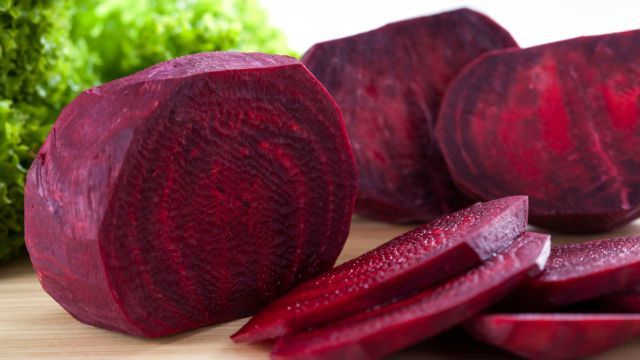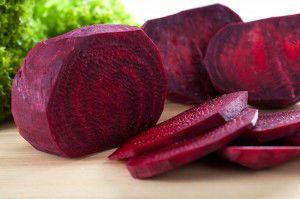
Beets are very popular in Eastern European cuisine, but have not been very common in the West until recent years. As more and more research comes to light about this nutritional powerhouse, however, more Americans are incorporating beets into their meals. This is good news, as beets have the strong potential to prevent and combat a wide variety of illnesses.
Some researchers hypothesize that the high consumption of these root veggies is to thank for Russia’s centenarian population throughout the ages. While some beet varieties are white, yellow or multicolored, we are most familiar with the deep red variety. It is exactly the pigments that give these beets their vibrant color that are responsible for much of their disease-fighting powers.
The red pigments found in beets are known as betalains, which are antioxidants with anti-inflammatory, antifungal and anticarcinogenic properties. In lab studies, betalains have shown significant promise in fighting pancreatic, lung, colon, prostate, testicular, breast and stomach cancer cells. These potent antioxidants also work to protect the body’s cells from environmental stressors, and help to protect organs and tissues from oxidative damage.
Betalains have also been linked to strong detoxification properties, and may aid in flushing various types of toxins from the body. Traditionally, beets have been employed to purify the blood and liver, and the betalains are likely at least partially responsible for this effect.
Betalains have also been associated with lowering the risk of birth defects, as well as lowering the risk of cardiovascular disease. In order to preserve the most amount of betalain content in your beets, cook them as little as possible – steaming or roasting until just done does the trick.
To preserve the maximum amount of the nutrients and disease-fighting qualities of beets, you can peel raw beets, chop them, and toss them in your juicer. Beet juice has been found to help lower blood pressure, likely as a result of the natural nitrate content.
The natural nitrates found in beets convert to nitric oxide in the body, which aids in relaxing blood vessels, improving circulation, and providing energy. Needless to say, all of these effects work to further prevent the risk of heart attack, stroke and heart disease.
On top of that, beets are rich in vitamin C, which is crucial for the health of the immune system. It also improves skin health, and reduces inflammation throughout the body, which helps to ward off all sorts of chronic ailments.
The fiber content of beets helps to keep your digestive system running smoothly, promotes healthy gut bacteria, stabilizes blood sugar, and may further reduce the risk of digestive-related illnesses such as irritable bowel syndrome (IBS) and even colon cancer.
One more thing: Be sure to make use of your beet greens, which can be served raw, steamed or sauteed like any other green. These are packed with antioxidants, including lutein, which is important to eye health and the prevention of macular degeneration. Also, they contain more iron than spinach.
 All in all, adding these ancient vegetables – both the roots and greens – to your healthy diet may do wonders in keeping you as healthy as can be.
All in all, adding these ancient vegetables – both the roots and greens – to your healthy diet may do wonders in keeping you as healthy as can be.
-The Alternative Daily
Sources:
http://www.whfoods.com/genpage.php?tname=foodspice&dbid=49
http://articles.mercola.com/sites/articles/archive/2014/01/25/beets-health-benefits.aspx
http://www.thebestofrawfood.com/benefits-of-beet-juice.html
https://www.thealternativedaily.com/1-reason-juice-beet-root-workout-routine
https://www.thealternativedaily.com/5-health-boosting-benefits-of-beetroot-juice

